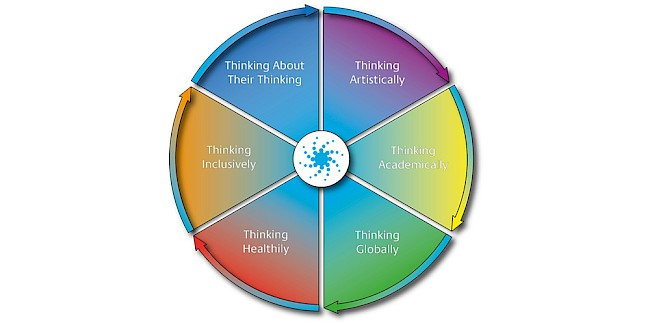We use a range of recourses to support our implementation such as Cornerstones, Jigsaw PSHE and Discover RE. We also use the Early Years Foundation Stage profile and the National Curriculum as a guide to shape our curriculum.
We take an explicit active approach to develop our children as thinkers. Each lesson begins with the ‘Perspective thinkers key’ which provides opportunity for the children to approach an enquiry question through the different areas. The frame for the lesson is set through the enquiry question, with the children debating and reflecting on the question throughout the session/series of sessions. Through this discussion interleaving opportunities are planned, requiring the children to draw from their long-term memory prior learning that can be built upon.

To develop our children’s vocabulary, our curriculum is enriched by literature. Children use poetry, picture books, film and short clips, powerful images and music to draw predictions and inferences through the power of literature, both modern and historical. Children use Thinkers Keys and Thinking hats to draw conclusions about the world around them. The exploration, modelling and teaching of vocabulary is explicit and mapped in a systematic age-appropriate way. We speak in full sentences and we expect children to speak in full sentences. This is further enhanced through our weekly ‘Big Read sessions’. During these sessions, Thinkers Keys and hats provide an effective framework for children to share, across phases, a range of texts to develop communication and language skills through child-led learning.
We teach the children all 16 Habits of Mind. However, for the children at New Horizons Children’s Academy we have a particular focus on what makes us be our best selves through our being our best agenda. These are namely: Persisting, Managing impulsivity, Thinking flexibly, questioning and problem posing, thinking and communicating with clarity and precision, creating, imagining and innovating and thinking interdependently. We take responsible risks though our wobble moments that underpin all habits across school life.
We have a planned enrichment curriculum to provide our children with opportunities within their locality and beyond. This, as well as our after-school provision, provides the children with a deeper understanding of the world around them. They use these experiences to build their cultural capital.